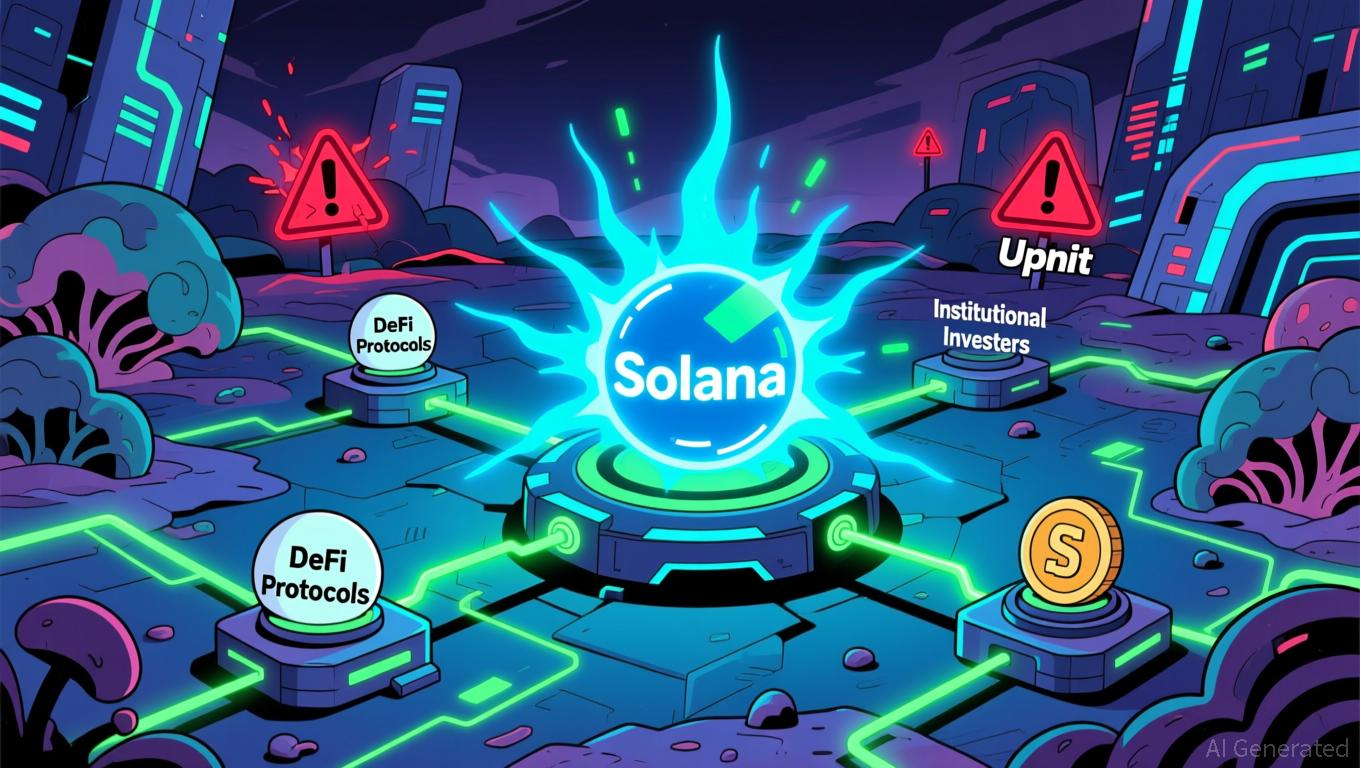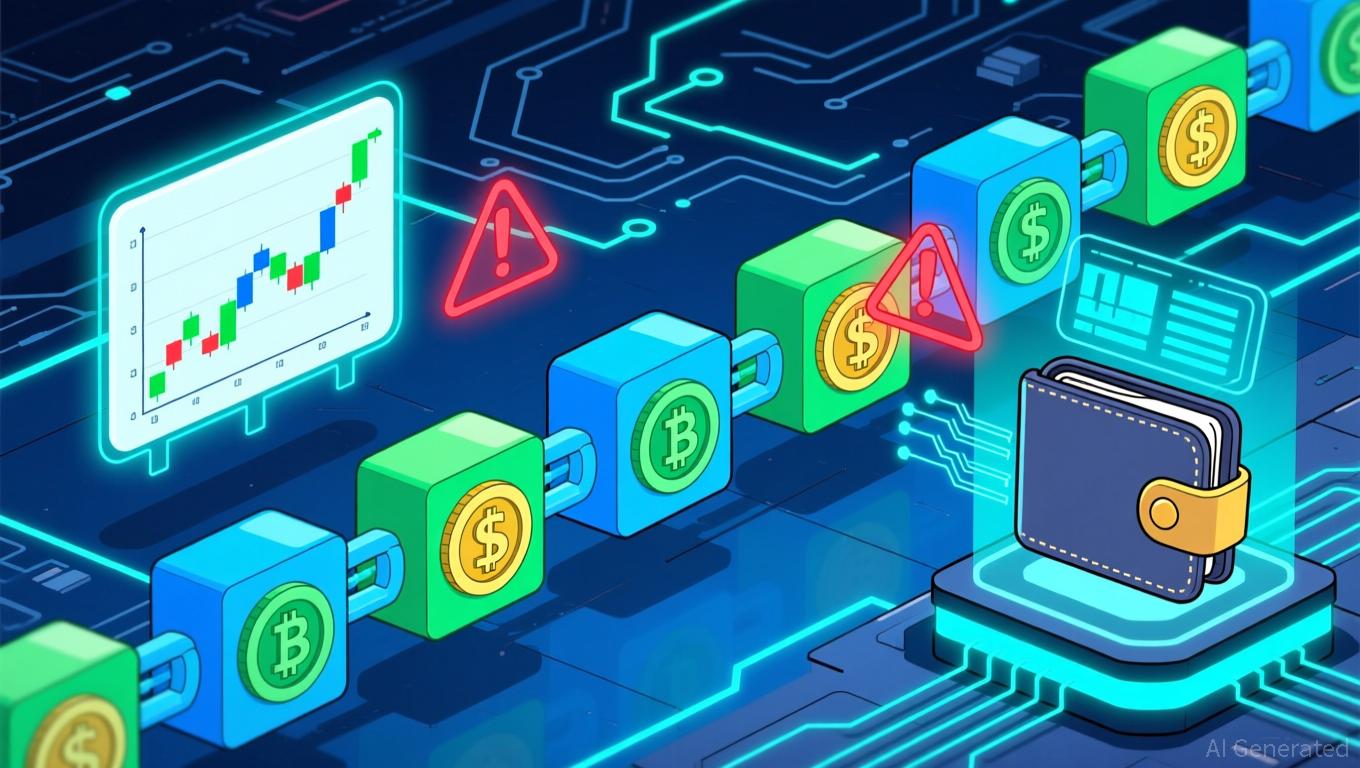Bolivia’s Digital Currency Bet: Navigating Volatility with Stable Solutions
- Bolivia's government permits banks to custody cryptocurrencies and offer crypto-based services, reversing a 2020 ban to combat inflation and dollar shortages. - Stablecoin transactions surged 530% in 2025, with $14.8B processed as Bolivians use USDT to hedge against boliviano depreciation (22% annual inflation). - State-owned YPFB and automakers like Toyota now accept crypto payments, while Banco Bisa launches stablecoin custody to expand financial inclusion for unbanked populations. - The policy faces c
Bolivia has made a significant move to incorporate cryptocurrencies and stablecoins into its official banking sector, ending a ten-year ban on digital currencies. On November 26, 2025, Economy Minister Jose Gabriel Espinoza revealed that banks will now be allowed to hold cryptocurrencies for clients and provide crypto-related services such as savings accounts, credit cards, and loans. This policy, introduced as a response to persistent inflation, a shortage of US dollars, and the drive for economic modernization, places Bolivia as
This change in direction comes after the June 2024 repeal of a 2020 ban on crypto transactions, which sparked a rapid increase in usage. From July 2024 to June 2025, Bolivians conducted $14.8 billion in stablecoin and crypto transactions,
Both businesses and government agencies are adjusting quickly. YPFB, the state-owned energy firm, has announced intentions to use crypto for importing energy, while carmakers such as Toyota and BYD

The adoption of stablecoins is also viewed as a way to boost financial inclusion. With 86% of recent crypto transactions involving individuals rather than companies, the new policy is designed to give unbanked citizens access to stable, dollar-linked assets
Although the initial rollout centers on stablecoins, the government has not yet granted legal tender status to more volatile cryptocurrencies like Bitcoin. Espinoza stated that any future expansion will depend on regulatory progress and the outcomes of this first stage
This initiative highlights a wider global trend where countries are turning to crypto to address economic uncertainty. For Bolivia, embracing stablecoins is both a practical solution to current challenges and a bold step toward modernizing its financial sector.
Disclaimer: The content of this article solely reflects the author's opinion and does not represent the platform in any capacity. This article is not intended to serve as a reference for making investment decisions.
You may also like
Privacy Altcoins Surge While Crypto Markets Decline
In Brief Cryptocurrency markets faced a major downturn in recent weeks. Privacy altcoins like Zcash rise amidst stricter regulation concerns. Upcoming regulations pose liquidity risks for privacy-focused cryptocurrencies.

Solana News Today: Institutions Remain Confident in Solana Amid Security Concerns and Volatile Prices
- Solana's on-chain trading volume now exceeds centralized exchanges, driven by $510M in ETF inflows and institutional adoption of DeFi protocols. - Price volatility and security breaches, including Upbit's $36.8M Solana-based theft, highlight risks despite $3B+ in corporate treasury holdings. - Institutional capital continues to flow into Solana's ecosystem, with DWF Labs committing $75M to scalable DeFi infrastructure amid TVL recovery to $120B. - Forward Industries reports $668M unrealized losses as Sol

XRP News Today: XRP ETFs See Rapid Growth, Price Remains Flat—Will Increased Inflows Overcome Technical Barriers?
- XRP ETFs saw $164M inflows on Nov. 24, 2025, with Grayscale and Franklin Templeton launching new products amid rising institutional interest. - Price rebounded to $2.20 but remains range-bound below key technical levels, forming descending patterns despite ETF-driven liquidity gains. - Ripple's RLUSD stablecoin surged 56% in 30-day volume to $3.5B, now third-largest GENIUS Act-compliant stablecoin after USDC and PYUSD. - Analysts predict $5.05 by 2025 and $26.50 by 2030, but XRP's 16.95% drop from 30-day

SEC Considers Blockchain Stock Advancements as Concerns Over Conventional Market Stability Persist
- SEC plans to discuss tokenized stock regulations with major firms like Coinbase and BlackRock , aiming to modernize securities rules for blockchain-based finance. - Proposed "innovation exemption" seeks to fast-track crypto products but risks destabilizing traditional markets by creating valuation gaps and eroding investor protections. - WFE warns tokenized shares could disrupt market structure, while Nasdaq proposes unified order books with shared CUSIP identifiers to align with existing systems. - Regu
